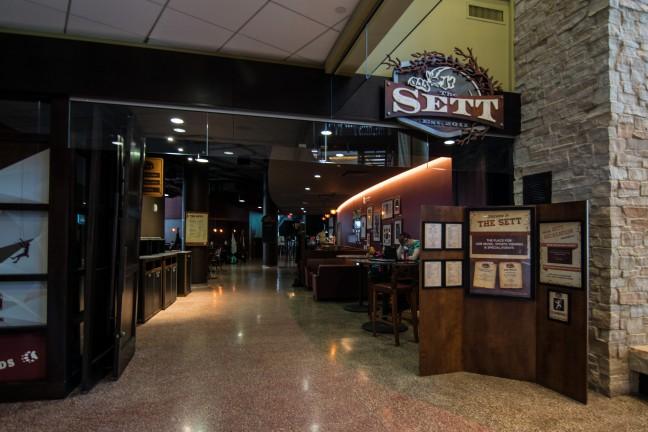Given the divisive and stressful state many find themselves in due to current events, the healing and communal properties of music may make it more important now than ever.
Wisconsin Union Directorate Music’s Bobby Vanderwist and others are hoping to channel a healing music space with the new event: Music For Mental Health. The new event series — the first one occurred Nov. 11 — will serve as not only a concert series, but also a space where die-hard fans and casual listeners can come together to heal.
While there are no concrete plans set for another edition, Vanderwist and the event’s organizers expressed a deep interest in holding the event again sometime next semester or year.
The Badger Herald talked to Vanderwist before the first event to discuss the overall purpose, planning and future of the event.
BH: How was the idea behind Music for Mental Health initiated?
BV: Music for Mental Health began as an informal idea over the summer. I have noticed for a long time that within my personal music scene, which is emotionally driven punk and rock music, there are a lot of people that really have music as a support system. I wanted to (a) plan an event that highlights the potential of the music community for healing and for support for those who need it. And (b) make people who come to this show aware of all of the resources on campus for those who are struggling, or for those who know of people struggling.
BH: Prior to booking the entertainers, were you looking for a specific individual to fit the role for the event?
BV: From the beginning I knew it had to be somebody who understands the capacity of music to provide a support network for people who are dealing with addiction and mental health issues, but I wasn’t necessarily looking for someone to fit this role initially. I booked Sorority Noise and shared this idea with their agent who I was working with. Cameron was really on board for the idea. This event really arose from having booked Sorority Noise and realizing that this is what their music is focused on — helping people dealing with issues of depression and addiction and recovering from that.
BH: Are there specific resources being advertised?
BV: There are a couple different organizations on campus that deal with mental health, one of them being UHS, along with other resources that will be present for students and community members.
BH: You mentioned Sorority Noise as one of the headliners for the event. What about their music or themselves falls in line with the messages the event is promoting?
BV: One of the members, Cameron Boucher, is very vocal about issues and a lot of their music is about mental health, recovery and addiction. After talking to Cameron about it we created this larger event where we would have different representatives from resources on campus, such as UHS, to have some information and utilities there if anyone ever needed the support, or would benefit from any of the information.
BH: Are there any other entertainment aspects to this event?
BV: Yes, the other part of the event will occur directly before Sorority Noise and will be a comedian named Aparna Nancherla, who has also been vocal about these issues in the past. When she was booked we decided to make it a part of this event and a bigger thing for people who wouldn’t come to the SET show, but would be interested in seeing the comedian. Heavy rock music isn’t for everyone, but everybody could use a good laugh.
BH: Where do you see this event heading in the future?
BV: I would love to have an event like this happen again. From this first event, if we can help convey the right information about these resources to someone who needs them, then I would consider that a success in itself. Not that I would not want to do it again, but this was just something we wanted to try out. If we can find artists that embody this mission as much as the ones currently then I would love to do it again next semester or next year.
BH: How is this event different from things you have done in the past? Or have you done similar things like this before?
BV: Previously, WUD Music has focused on getting the most out of these experiences in terms of helping people and providing productive bases through music. It is a little different because the mission is very specific for this event. Any time we book an artist in terms of entertainment there is not much else to it. WUD Music is always concerned with bringing in artists that represent the mission well. We aren’t going to book people who are not as focused as we are, which is why bringing in Sorority Noise and Aparna Nancherla has worked well.
BH: Throughout your process, were there any major challenges that came about when trying to plan and organize this event?
BV: Honestly not really, considering everyone was very onboard with the event. We did have a band drop off of the Sorority Noise Tour and was replaced by Free Throw, who also embodies the message of making music a community very well. But other than that there were luckily not many significant challenges.
BH: If you could tell students at UW-Madison one thing about this event, what would it be?
BV: Even if you are not a fan of heavy, emotionally driven rock and roll music, there is a comedian at Memorial Union at 7 o’clock and everybody can use a good laugh. If nothing else, [you can pick up] a few pamphlets on these awesome resources we have here on campus, even if you don’t need it right now, the information could be more helpful than you could ever know.


